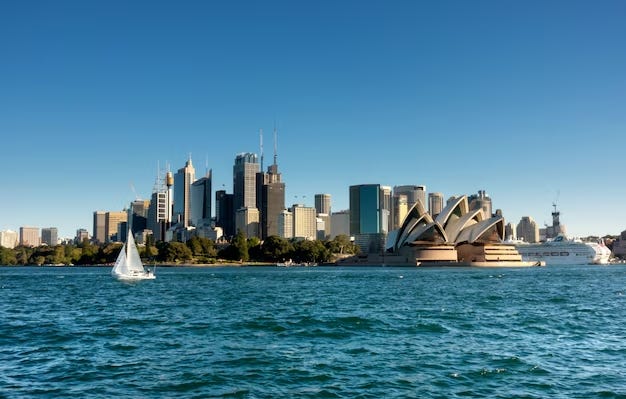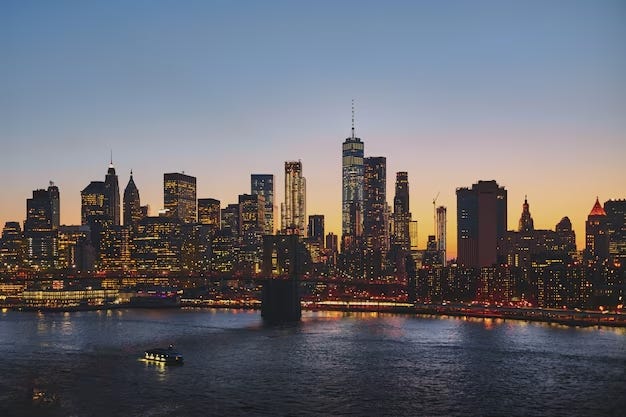
For those craving access to real information, this issue reveals timely investor insights, such as: Dubai’s booming real estate market is attracting global capital, with tokenization opening new doors for fractional investment. In Africa, rising M&A activity and widespread crypto adoption are reigniting interest in fintech and cross-border payments. Eastern Europe remains underpriced, offering strong technical talent and longer runways, especially in AI and cybersecurity. Meanwhile, in the U.S., life sciences are rebounding, and investor strategies are split, Bay Area optimism driving AI valuations sky-high, while New York stays grounded in fundamentals.

What’s happening in Australia?
Craig Astill, CEO at The Caason Group, highlighted that Australia continues to sit on some of the world’s richest uranium deposits, yet lacks a domestic nuclear energy program. Following recent political developments, nuclear remains off the table locally. However, Craig pointed to increasing international interest, particularly in the U.S., where plans to significantly scale up nuclear energy production are already in motion. For Australian investors, this contrast is creating renewed conversations about the country’s untapped uranium potential and its role in global energy supply chains.
What’s happening in Africa?
Florent Nduwayezu, Syndicate Investor at EUVC, shared that Africa is beginning to see a steady return of exit activity, especially in the form of mergers and acquisitions. After a post-2021 lull, investor interest is gradually recovering, with recent major deals, such as a high-profile remittance company acquisition in South Africa, drawing attention. He noted strong demand for solutions in cross-border payments, with high transaction costs and regulatory fragmentation presenting clear opportunities for innovation. Fintech remains a dominant sector, but climate tech is now rising fast as a secondary priority among both startups and investors.
What’s happening in Canada?
Sergio A. Escobar, Managing Director at Lalotte Ventures, observed a shift in the early-stage funding landscape in Quebec. Many local pre-seed and seed funds launched in the early 2010s are now closing out their cycles, creating a temporary funding gap for new ventures. While this has caused concern among founders, Sergio sees it as a healthy market correction. Valuations that were previously inflated, especially in Montreal’s AI-driven startup scene, are now stabilizing. This recalibration is opening the door for investors to enter at more reasonable terms and support the next generation of ventures emerging from one of the world’s top AI hubs.

What’s happening in the U.S.?
John H. Abeles, General Partner at Northlea Partners LLLP, reported a welcome shift in the U.S. venture capital space, particularly within life sciences. After several quiet years following the post-COVID correction, sectors like biotech, diagnostics, and agritech are attracting renewed interest. This recovery comes after a period when capital had largely shifted toward AI and digital technologies. John believes the current environment offers a window of opportunity for long-term investors to re-enter the life sciences space with more measured, fundamentals-driven strategies.
What’s happening in the Gulf region?
Sarper Tanli, Founder at Diginova Health Solutions, shared that healthcare and life sciences investment in the Gulf is gaining renewed traction, driven largely by Saudi Arabia’s ambitious efforts to scale its capabilities in these sectors. While deal activity in the UAE remains mostly concentrated in Abu Dhabi and continues to rely heavily on government-backed entities, Saudi Arabia is actively deploying capital, launching support programs, and encouraging international companies to establish a presence in the kingdom. Startups looking for early support, especially in health tech and medtech, are finding not only funding but also strategic incentives to localize operations and grow within the region’s expanding healthcare ecosystem.
Desmond Fu, Partner at Driven Properties LLC, shared that Dubai’s real estate sector continues to outperform global trends, with transaction volumes consistently hitting new records. Demand remains strong for high-end residential properties, particularly from international buyers. Indian investors lead the charge, followed by a growing wave of interest from the UK, partly fueled by recent tax changes and Chinese investors seeking more stable real estate markets abroad. A standout development is the official launch of real estate tokenization, spearheaded by the Dubai Land Department and supported by private firms. This innovation allows investors to purchase fractional shares of luxury properties, making the market more accessible to a broader range of capital. The pilot was fully subscribed, and plans are underway to establish a trading exchange in Dubai for these tokens, positioning the UAE as a pioneer in property investment innovation.
To access more exclusive investors’ insights from various countries and have an opportunity to meet them one-to-one, have a look at our investment video calls scheduled at the G.I.L.C portal. Continue reading here.





